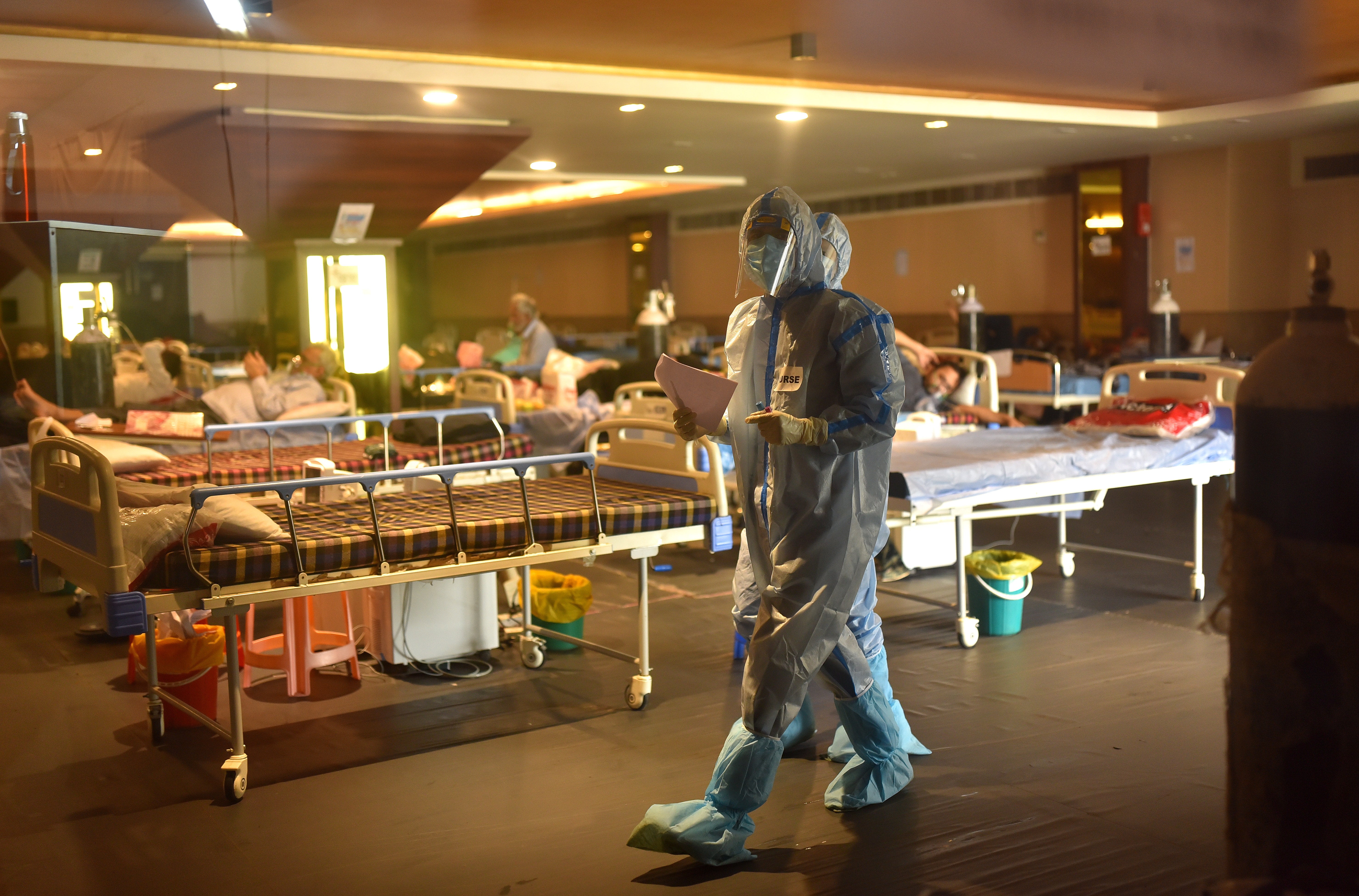New ‘highly transmissible’ Covid variant first identified in India less likely to be vaccine resistant, says top UK medic
The variant is less likely to be resistant to vaccines or antibodies, said UK’s top health expert

Your support helps us to tell the story
From reproductive rights to climate change to Big Tech, The Independent is on the ground when the story is developing. Whether it's investigating the financials of Elon Musk's pro-Trump PAC or producing our latest documentary, 'The A Word', which shines a light on the American women fighting for reproductive rights, we know how important it is to parse out the facts from the messaging.
At such a critical moment in US history, we need reporters on the ground. Your donation allows us to keep sending journalists to speak to both sides of the story.
The Independent is trusted by Americans across the entire political spectrum. And unlike many other quality news outlets, we choose not to lock Americans out of our reporting and analysis with paywalls. We believe quality journalism should be available to everyone, paid for by those who can afford it.
Your support makes all the difference.The new “highly transmissible” Covid variant that first emerged in India and is now spreading in many other countries including Britain is less likely to be capable of evading vaccines, said the UK’s chief medical officer Chris Whitty.
Variant B.1.617.2, which was classified as a “variant of concern” in the UK last week, is likely to be contributing to a spike in cases in the UK, Public Health England experts say.
"Our view is that this is a highly transmissible variant... (but) at this point in time, our view is it is less likely to be able to escape vaccination than some of the other variants," Professor Whitty said at a news conference.
Some 520 cases of B.1.617.2 have been detected in the UK so far, spreading in a similar way to the UK variant B.1.1.7, which led to runaway outbreaks in several regions of England.
Prof Whitty said that due to the unavailability of proper data, there is a need to be careful until clear evidence of the variant’s capability for immune escape is available.
"The data are not properly in there. So I think we need to be cautious until we’ve seen clear data that give us an answer one way or the other," Prof Whitty he said.
PHE cited evidence that the Indian variant spreads more quickly than the original virus and even the "Kent" variant that fuelled the second wave of infections in England.
Boris Johnson said in reference to the variant that: “I think we’ve got to be very careful about that.
“We’re doing a huge amount, obviously, to make sure that when we do find outbreaks of the Indian variant that we do surge testing, that we do door-to-door testing.”
The B.1.617.2 is one of three sub-lineages of the B.1.617, variant, that was classified as a “variant of global concern” by the World Health Organisation on Monday.
Both the variants were originally found in India in December and are believed to be fuelling the deadly second wave of cases there.
“We classify it [B.1.617] as a variant of concern at a global level,” Maria Van Kerkhove, WHO technical lead on COVID-19, said during the briefing. “There is some available information to suggest increased transmissibility.”
Professor Sharon Peacock, head of the UK’s genetic surveillance programme, said England’s public health body has moderate confidence that the B.1.617.2 variant has a similar capability of transmission as B.1.1.7, which originated in the UK. But said there is more to be known about the Indian variant which is leading to “huge amount of uncertainty” at the moment.
Scientist Vinod Scaria, who researches genome mutations at the CSIR-Institute of Genomics and Integrative Biology, said it is unlikely B.1.617 is a major immune escape variant.
“B.1.617 was found to be resistant against Bamlanivimab, an antibody used for Covid treatment. B.1.617 also evaded antibodies induced by infection or vaccination with BNT162b2 although with moderate efficiency,” he added.
Join our commenting forum
Join thought-provoking conversations, follow other Independent readers and see their replies
Comments